Rohingya Crisis Response in Bangladesh: Is a strategic shift from the current approach needed?
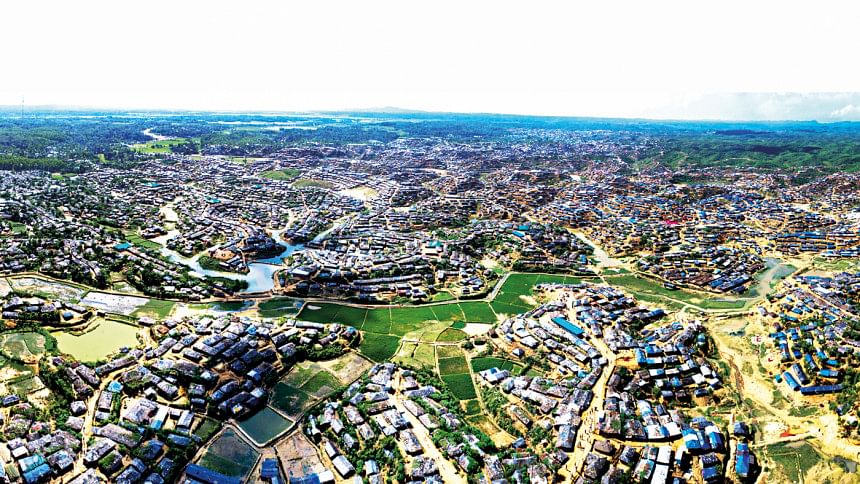
Approximately one million people from the Rohingya community escaping violence in Myanmar arrived in Cox's Bazar district of Bangladesh in August 2017. Five years have passed and the crisis has now evolved from an emergency to a protracted mode. The Government of Bangladesh (GoB) and international humanitarian agencies are working together towards a "strategic shift". Having passed the initial emergency response phase (2017-2019) and pandemic response phase (2020 – 2021), this response plan has now entered into the protracted phase, which is characterised by uncertainty due to delays in repatriation and fund crunch. BRAC and the Department of Development Studies, University of Dhaka organised a policy dialogue on 30 November 2022, bringing together government officials, diplomats, researchers, and development professionals to discuss accountable ways of delivering services to the Rohingyas while making the best use of the shrinking funds. A summary of the discussion is presented in this special supplement.
Inaugural Session
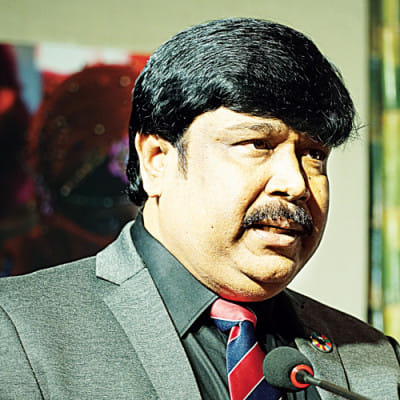
SM Monjur Rashid, head of programme, Advocacy for Social Change, BRAC
The goal of today's policy dialogue is to influence policymakers, implementers, and development partners to create a framework for managing the Rohingya crisis in a cost-effective way, taking into account the changing needs and priorities of the Rohingyas and the availability of necessary resources.
This dialogue has brought together a variety of actors and agencies who share our goals and interventions that will contribute to a comprehensive Rohingya response mechanism to meet the basic needs and priorities of the forcibly displaced Myanmar nationals. In the last five years, we have achieved impressive results together in responding to this humanitarian crisis in one of the world's largest refugee settlements.
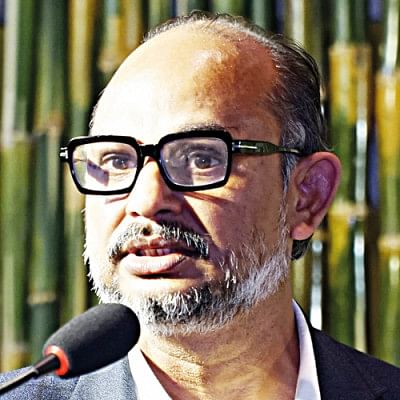
Prof Dr Rashed Al Mahmud Titumir, chairman, Department of Development Studies, University of Dhaka
The persecuted Rohingyas in Bangladesh camps are in protracted crisis, following much exodus since genocide in Myanmar. In the camps, there are four main actors: the government, the Rohingya community, the host community, and international humanitarian agencies. Rohingyas live a sub-human life since the four actors operate within constraints of 'bounded response' as the durable solution of safe, dignified voluntary repatriation remains a far cry, with no walking the talk by the international community.
Our research suggests that the response strategy to the crisis is particularly concerning, as there is a significant mismatch between the basic requirements and the services provided in camps in view of changes in the population pyramid. In view of the high birth rate and shifts in age-structure in the camped population, the response strategy has to be re-designed to reflect the evidence and to address the needs, amongst others, in provisioning of basic services, education and training in skills for employability. The role of responding agencies - local, national, and international NGOs – requires changes in efficiency and capacities to address the changing nature of services while being mindful of reduction in overlapping. The changing nature of milieu and the contingent shift requires a re-think in host-Rohingya relationships.
During this phase, there has been a reduction in the flow of support, which is causing significant problems in addressing the needs associated with demographic patterns, with contingent consequences for education, health, basic services, skills, and employability. The downside is hopelessness.
During the Emergency Response Phase of 2017-2019, about 75% of the assistance requirement was met, declined to 65% during Pandemic Response Phase of 2020-2021. Currently – in the Protracted Phase, beginning in 2022, the level of assistance is only 44%, which is below the 50% mark. The international community needs to decide on an urgent basis how it will respond to this crisis in light of the Sustainable Development Goal; Leave No One Behind; since the crisis is in the emergency room while the government of Bangladesh with its limited capacities continue to bear the brunt.
According to our provisional estimates, the fund requirements for the Rohingya crisis response are USD 1315.2 million in 2023, USD 1578.24 million in 2024, USD 1893.88 million in 2025, USD 2272.66 million in 2026, and USD 2727.19 million in 2027. If the durable solutions are put on limbo, the funds requirement almost doubles in 2027 due to population growth. It is alarming that there has been a trend of gradual decline in the amount of funds received compared to the actual fund requirement. There has been no calculation of loss and damage in terms of the environment, which would require a significant amount of additional funding.
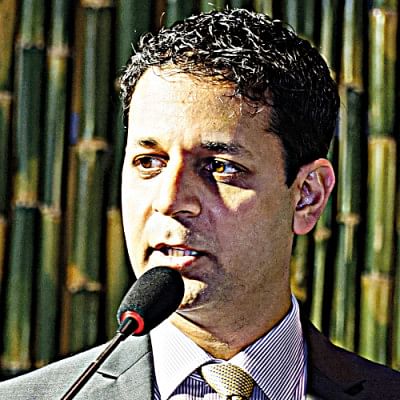
Vivek Prakash, head of cooperation, Rohingya Refugee Response, High Commission of Canada to Bangladesh
Canada's second strategy for the Myanmar and Rohingya crisis recognises this protracted situation. The first element of Canada's strategy is to continue advocating for and bringing attention to the Rohingya crisis, including to pressure the government of Myanmar to create conditions for the safe and dignified return of the Rohingya.
Secondly, Canada continues to provide essential services, such as healthcare and food as well as LPG, which has helped to address environmental degradation caused by deforestation. The camps today are much more lush than in 2019, because people use a lot less firewood. LPG and reforestation is a success story in this ecologically sensitive area.
The third pillar of Canada's strategy is to improve the resilience and self-reliance of the Rohingya people. This includes supporting education, skills development, and livelihoods. These long-term supports are vital for a more sustainable solution.
The final pillar of the strategy aims to promote social cohesion by supporting the host community to ensure they are not left behind. We must address their aspirations to improve skills and work in areas with greater opportunity, such as electronic repairs (for men), and graphic design (particularly for women).
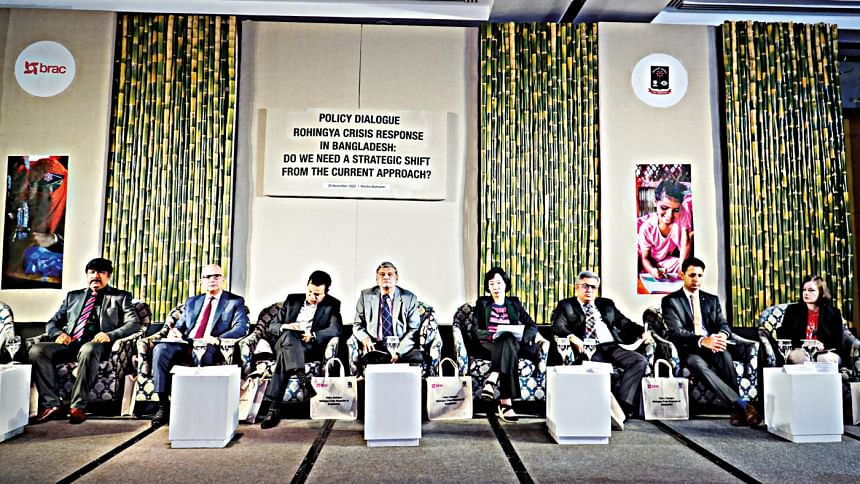
It's important not to forget that this is a humanitarian crisis; the Rohingya were denied rights by their state and forcibly displaced to Bangladesh. In Bangladesh the Rohingya have no legal right to work, and that means that they need greater financial support. The sustained presence, engagement and involvement of national and local NGOs is vital and we must create livelihood opportunities, including with the private sector. The private sector will only join when they are assured of compliance with international labour regulations. The donor community can help meet the needs of the population, but we must all enable their own agency to live a dignified life.

Soo Jin Rhee, UNHCR Deputy Country Representative in Bangladesh
For the one million Rohingya refugees in Bangladesh, conditions in Cox's Bazar – one of the country's poorest districts and home to the world's largest refugee camp – remain overcrowded with most of the refugees remaining fully reliant on humanitarian assistance for their survival. Most refugees continue to be entirely dependent on food distributions, primary and specialist health care, support for access to water, sanitation and hygiene, cooking fuel through LPG distribution, and a multitude of critical protection interventions. These critical life-sustaining activities require continuous assistance and support from the Government and the humanitarian community.
While the ultimate solution to the crisis lies in creating conditions conducive for the voluntary, safe and dignified return to Myanmar, Rohingya refugees are likely to be staying in Bangladesh for the foreseeable future. In order to help Rohingya refugees live a dignified life in the refugee camps and become more productive members of society, bolstering resilience and self-reliance through investment of education, skill development and livelihoods is all the more important. This will require providing them with the necessary resources and support to develop skills and access to livelihood opportunities in a sustainable manner.
Following the signing of the MoU in October 2021, UN operations have been engaged and scaled up its humanitarian assistance and services for the 30,000 refugees which to date have been relocated. To ensure the success of the Bhasan Char project, it is key to provide refugees with viable livelihood opportunities and facilitate market linkages. Without such longer-term interventions, it will be difficult to sustain the humanitarian operation on the island.

Asif Saleh, executive director, BRAC
There is no denying that our utmost priority is to advocate for the safe return of Rohingya refugees to their homeland. However, there is growing recognition that the current efforts to support the Rohingya community should shift from a short-term, crisis-focused approach to a more developmental approach that takes a mid-term view of the situation. This shift is essential not only from a humanitarian standpoint but also from a security perspective.
When young people are confined to a densely populated area with nothing to do, there is a genuine risk of instability and conflict. It is essential to consider the role of security and stabilisation as we look towards a longer-term approach.
It is essential to change the current response to the Rohingya crisis to sustain it in the present and future as long as this community remains in Bangladesh. Therefore, it is essential to reflect on the response's scope, governance, resourcing, and participation aspects and consider how they can be improved.
Robust education skills development opportunities are required for a sustainable approach. As resources and aid are decreasing, a more efficient and integrated mechanism of delivery services should be explored.
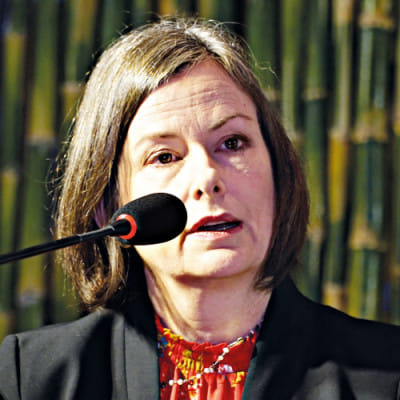
Kathryn Davis Stevens, mission director, USAID Bangladesh
Providing education and equipping Rohingya with skills and livelihood opportunities is essential not only for the refugees themselves, but also for the host communities. This will contribute to security, stability, and economic opportunity in those regions. It is also important to move beyond a focus on humanitarian assistance and adopt a multi-year approach that addresses the long-term needs of the Rohingya refugees. It is important to recognize that significant progress has been made in the Rohingya response effort, including the recent enactment of a skills development framework and volunteer engagement guidelines. Since 2017, the United States has contributed $1.9 billion to the response, with $1.5 billion going towards supporting the Rohingya in the camps and the host communities.
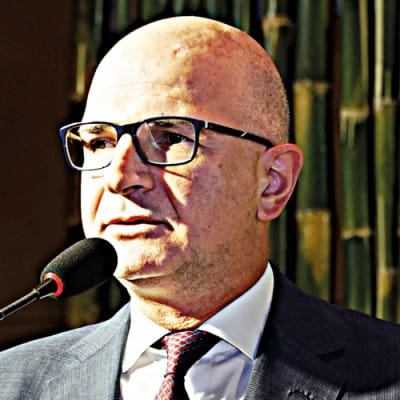
H.E. Mustafa Osman Turan, ambassador of Turkey to Bangladesh
As a country hosting the largest refugee population, Turkey is well-positioned to understand the situation in Bangladesh. We understand that the Government of Bangladesh is committed to starting repatriation as soon as possible, and we are supporting Bangladesh in international platforms and at the International Court of Justice to put pressure on Myanmar to accept the Rohingyas.
The increasing density of the Rohingya population is raising concerns about security, the provision of services, and the relationship between the host community and the Rohingya. If a longer-term policy is not adopted, this could be a recipe for disaster. The lack of employment and hope among the Rohingya can create a breeding ground for radicalization and other illegal activities. Law enforcement agencies often leave the camps at night, which leaves the Rohingya vulnerable, particularly women and children. It is essential to address the issue of nighttime security to ensure the protection of all members of the community.
Given the decline in funding, it may be necessary for Bangladesh to tie the funding for humanitarian assistance in Cox's Bazar to a multi-annual framework to ensure that it is not redirected to other priorities. This will help to provide a more stable and long-term approach to addressing the needs of the Rohingya and supporting their self-reliance.
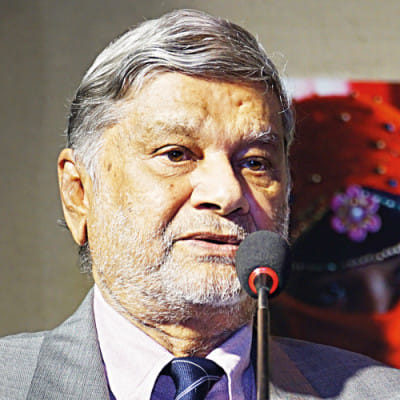
MA Mannan, minister, Ministry of Planning, Government of the People's Republic of Bangladesh
Initially, the prioritised needs of the Rohingya, such as shelter, food, medical care, education, and skill development, were addressed in a scattered manner. However, with the help of NGOs and UN bodies, humanitarian assistance has gradually been structured into a more organised framework. However, this is not enough; we need more financial support and a deeper understanding of the Rohingya crisis.
The lack of security, particularly at night, in the camps is a major concern. The Ministry of Home Affairs, the RRRC, and other relevant authorities must work together to address this issue and find possible solutions. The lack of security is not only alarming for the Rohingya population but also for NGO professionals, both local and international, who are unable to properly perform their roles without proper security measures in place.
The Government of Bangladesh believes in engaging with the Myanmar regime in an effort to find a solution to the Rohingya crisis. While past attempts at dialogue have not been successful, the Ministry of Foreign Affairs will continue to pursue this approach in the future. It is hoped that by working with the international community, a stable regime in Myanmar can be engaged in dialogue and discussion to find a way for the Rohingyas to return to their homeland.
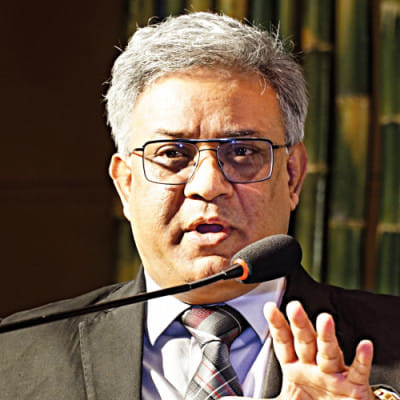
Prof Dr Maksud Kamal, pro-vice chancellor (Academic), University of Dhaka
The funding deficit for Rohingya humanitarian assistance is increasing every year, and it will be difficult for Bangladesh to provide the necessary assistance without continuous financial support from the international community. As the host country, Bangladesh should adopt an interim strategy with a short-term approach, given the current situation. It is not realistic to pursue a long-term strategy to support the needs of the Rohingyas, including education and livelihood support, until the crisis is resolved. It is essential that the international community continue to provide the necessary financial support to help Bangladesh address the needs of the Rohingyas in a sustainable manner.
The Rohingya crisis has had significant environmental impacts in the camp area, including a decline in groundwater levels, landslides, and soil erosion. For example, landslides have occurred almost every year, with one in 2022 resulting in the deaths of eight individuals, the displacement of 13,000 people, and more than 500 injuries. Soil erosion has also increased as a side effect of efforts to protect against landslides, rising from 59 pounds per hectare in 2015 to 80 pounds per hectare in 2020. It is essential to comprehensively address these environmental issues in order to protect the health and well-being of the Rohingya and the surrounding community.
Technical session 1: Basic Services, Food Security and Skills of the FDMNs
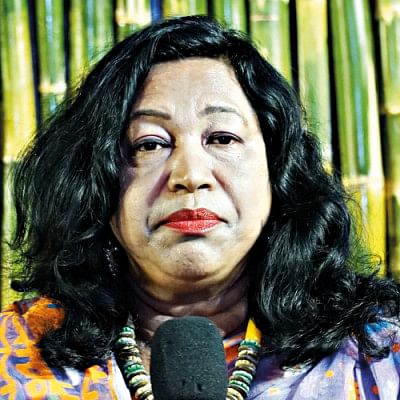
Prof Salma Akhter, Department of Sociology, University of Dhaka
One issue facing the Rohingya population in Bangladesh is determining the ethnic identity of those born in the country. This can be difficult for this young generation to understand their role and status in Bangladesh, especially if they have dual identities.
Another issue is the social cohesion between the host community and the Rohingya population. Both communities often feel vulnerable, insecure, and deprived, and may view each other as competitors.
Women from both communities also face gender-based violence, with some Rohingya women informed that their husbands pressurise them and want to have more children when women do not want to. Host community women mentioned their husbands abandoning them by marrying Rohingya women as Rohingya women get support from the development partners and host community women do not have income generating activities. It is important to address these issues in order to promote understanding and harmony between the host community and the Rohingya population.
One of the challenges in addressing the education and employment needs of the Rohingya population in Bangladesh is determining the appropriate education system for them. It may also be difficult to prepare them for the job market and integrate them into Bangladesh's educational system. A sustainable approach may be taken to provide livelihood and skill development training to both the host community and the Rohingya community in order to make them employable.
While some development partners may be willing to allow refugees to move to their countries, it may be more prestigious for the Rohingya to become self-sufficient through employment rather than continuing to move from one country to another as refugees.
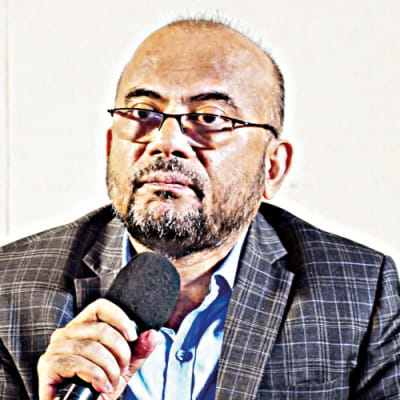
Mohammed Mizanur Rahman, Refugee Relief and Repatriation Commissioner, Ministry of Disaster Management and Relief
The scarcity of qualified teachers from the community is a significant issue,.even we don't find a suitable number of competent teachers for the Burmese language. For the last few years NGOs have been recruiting one teacher from the host community to teach English and Science, and another from the Rohingya community to teach the Burmese language in every learning centre. However, the stipend offered to teachers from the host community is not bare minimum to engage them to work in the camps. As a result, the quality of teaching has been compromised-leading to a higher drop-out rate in the camps. While the Myanmar curriculum has been introduced, there has been a challenge of having a proper assessment system or certifications of education. Additionally, there is a need for more space and classrooms for learning centers, but because of the land scarcity and given the context of nature of the land we cannot go for further construction of the infrastructures.
In regards to law and order, all the Camp in Charges (CiCs) cannot stay in the camp premises at night, as there are no such arrangements yet. However, there are some police camps in the area. Plans are underway to expand the number of police camps.
The demographic status of the Rohingya is somehow ignored when we talk about gender based violence or polygamy as the ratio of female is higher than the male and among the males, there are fewer eligible men because many of them were killed and imprisoned in Myanmar and many live abroad - in Malaysia or Saudi Arabia. Some unscrupulous individuals are taking advantage of this situation by taking multiple wives, which contributes to the increase in violence in the camp.
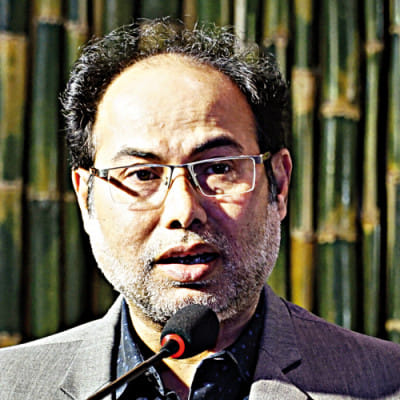
Prof Taiabur Rahman, dean, School of Social Science and Humanities, IUB
The Rohingya crisis is a global issue. We cannot look at it from only the points of view of the host or camp dwellers. We have to look at it from a comprehensive holistic perspective. We can call it a meta governance issue as there are so many actors involved – international, national, regional, host, local, non-government organisations, and private organisations. One major issue is the engagement of Myanmar. We can take care of systems that will create basic service provisions in the camp but the government needs to work with relevant stakeholders to send these people back to their home country.
Technical session 2: Changing Resource Needs and Roles of Relevant Actors in Responding Rohingya Crisis
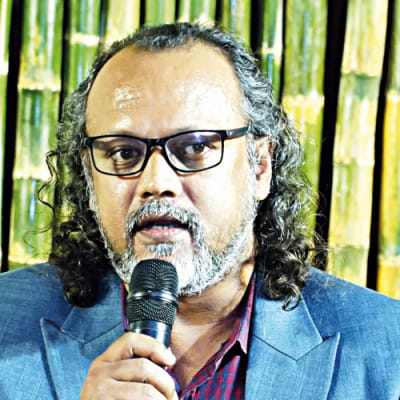
Dr Bokhtiar Ahmed, professor, Department of Anthropology, University of Rajshahi
I personally witnessed the influx of Rohingya in the 1990s as a young member of the host community. At that time, there were few NGO professionals and hardly any local people working in crisis management operations. However, now there is an unprecedented number of people from the host community working for many NGOs.
Fortunately, Bangladesh had the necessary development sector expertise, with professionals experienced in emergency response and humanitarian efforts, to effectively handle the large influx of Rohingya in September 2017. As a result, Bangladesh was able to respond well to the situation despite facing other limitations.
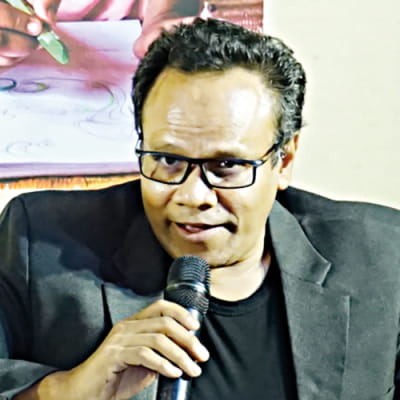
Dr Helal Mohiuddin, professor, Department of Political Science and Sociology, North South University
In this discussion, the RRRC mentioned that the upcoming strategic plan for the Rohingya response is being designed based on the demographic shift of the Rohingya population. However, I believe it would be wise to base the strategic plan on the long-term management of the emerging protection situation, considering government policies, diplomatic relations, and other factors. The plan should address issues such as localization, overlapping, repetition, inconsistency, and duplicity in policy direction.
Our research has revealed that adolescent Rohingya boys in the camps are the most neglected group in terms of development interventions. This lack of support increases their risk of involvement in radical activities, which is harmful not only to the Rohingya community but also to the host community.
Therefore, it is important to develop leadership within the Rohingya community so that their voices can be heard and their perspectives considered. Currently, their voices are largely missing from discussions and decision-making processes.
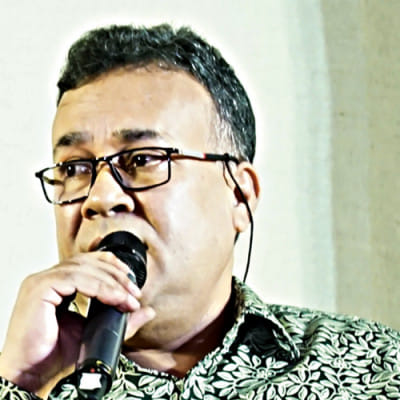
Dr ASM Amanullah, professor, Department of Sociology, University of Dhaka
There is a lack of coordination in the health services in the Rohingya camps, as demonstrated by various studies of these camps. It is important to disseminate important research findings to donors and development partner communities for a better understanding and future planning.
Bangladesh has not ratified the 1951 Convention or the 1967 Protocol, and there is a question of how to mobilize resources in the camps to generate employment and take local resource mobilization initiatives if the Rohingyas are not considered refugees and international donors use the term "refugee." Bangladesh should accede to the 1951 Convention and the 1967 Protocol.
It is also important to consider the increase in noncommunicable diseases in the Rohingya camps. Our dietary study in the camps found that there is nutrition and food security, but there is a lack of dietary diversity. Additionally, there is an unmet need for family planning services, mental health services, and trauma services, in addition to basic needs such as education.

Mia Mohammad Mainul Kabir, director general (Myanmar), Ministry of Foreign Affairs
NGOs and donor agencies, at times, acknowledge the lack of coordination among themselves in terms of their humanitarian operations in the camps. To address this, there needs to be effective coordination among all actors involved in the Rohingya response. This can be achieved by combining the government's direction and donor mechanisms to ensure transparency and proper coordination.
It is clear that all Rohingyas are interested in returning home, and the situation in Rakhine needs to improve. Therefore, donors and UN agencies should boost their engagement there to ensure that the Rohingyas can return safely and sustainably to their homeland.
Bangladesh and UN agencies have agreed on a couple of new initiatives, including skill development programs, volunteer engagement for the Rohingyas. The skill development framework will enhance the skills of the Rohingyas in sectors that they were engaged in Rakhine before their forced displacement, such as agricultural work. In addition, Rohingya children are learning inside the camps following the Myanmar curriculum.
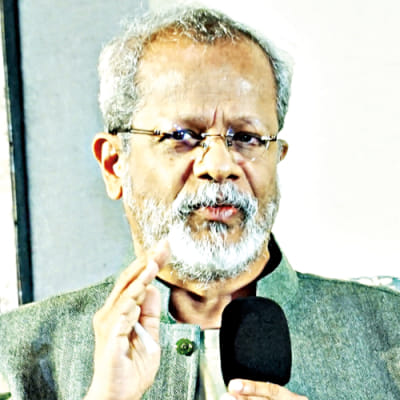
Dr Imtiaz Ahmed, professor of International Relations, University of Dhaka
It is important to include the Rohingyas in discussions about strategies that affect them. The Center for Genocide Studies has collected extensive data on violence over the past decade and has also mapped violence in Rohingya camps. Contrary to what some may believe, these camps are actually safer than cities like New York or Chicago. In fact, the rate of gun violence in the United States is around 40,000 per year, while violence in Rohingya camps is significantly lower. This is due in part to the strong social resilience of the Rohingyas in these camps.
This year, there is a 300 million US Dollar deficit. As long as refugees and stateless people are here, UN agencies have responsibilities. The United States alone funded arms for the Ukraine war worth 20 billion dollars in one year, yet we are worrying about a deficit of 300 million. The annual transaction of Yaba drugs is between 30 and 60 billion US dollars, and the Myanmar military has a business interest in the Yaba trade. However, the rest of the world remains silent on this issue.
We must be realistic and consider whether we can implement a Marshall plan, in which the Myanmar state sees it as advantageous to address the needs of the Rohingyas, who they view as Arakani Muslims.
CLOSING SESSION
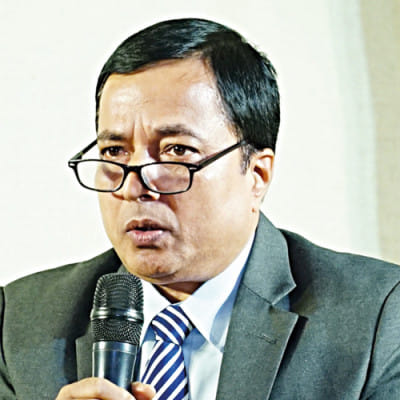
SK Md Moniruzzaman, director general (Additional Secretary), NGO Affairs Bureau, Prime Minister's Office
We have established earning opportunities for the Rohingyas in Bhasan Char, such as farming. However, we need to create even more opportunities for them. The government plans to relocate more Rohingyas to Bhasan Char to ease the overcrowding in the Cox's Bazar area.
Despite limited resources, our representatives continually assess the needs of the Rohingyas and prioritize support accordingly to ensure that relief efforts are not wasted. It is important to carefully consider the potential impact and sustainability of any new projects for the Rohingyas.
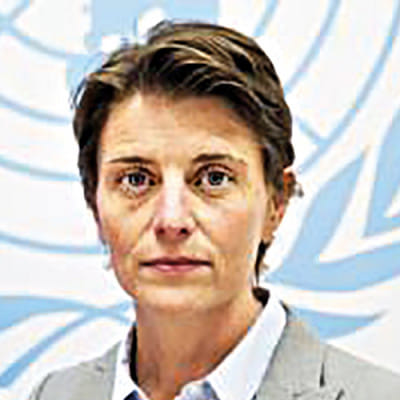
Gwyn Lewis, UN Resident Coordinator in Bangladesh
The ultimate solution to the Rohingya crisis lies with the government of Myanmar. The political efforts of the UN to create a conducive environment for addressing the political issues at hand continues to be of utmost importance. The Security Council and General Assembly have increased their engagement in this issue since 2017, but action continues to be needed.
The repatriation of the Rohingyas to Myanmar must be voluntary, safe, and sustainable. The Rohingyas have faced persecution for decades, and when they do return home, they will need a safe place to live and necessary services must be in place. In the meantime, education and skill development is essential for the Rohingya community to have the knowledge and experience to be self-reliant when they return home.
The international community's support to the response has been critical in ensuring that Bangladesh does not bear the burden of supporting the Rohingyas alone. This support needs to continue, but to be effective and efficient in addressing this crisis, we also need to think long-term. Together we should consider how we can continue to provide essential services such as health and education. It will be important to engage with international financial institutions or different donors to secure long-term funding and multi-year programming.
Providing the Rohingya with livelihood opportunities is also another avenue to be explored that will also mean less reliance on assistance. Giving people choices and allowing them to able to support themselves will mean the response is more sustainable until the Rohingya are able to return safely and with dignity to their homes.
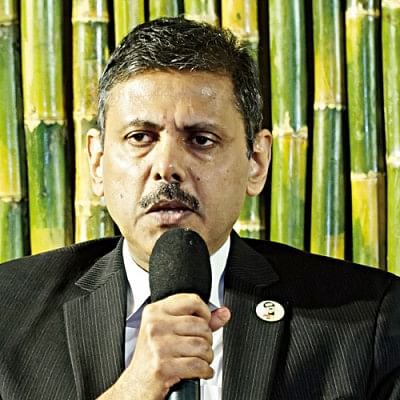
Shabbir Ahmad Chowdhury, secretary (West), Ministry of Foreign Affairs
Over the past five years, we have exhausted our diplomatic efforts to address this crisis. We have engaged bilaterally with many countries around the world, but the only viable solution is the safe and voluntary repatriation of the Rohingya to Myanmar. While the problem was created by Myanmar, we have unfortunately been paying the price for it. The solution must be found by the Myanmar government.
Alternative measures such as developing the skills of the Rohingya with the goal of increasing their employment in Bangladesh may lead to increased unemployment or underemployment of Bangladeshi citizens, causing tension and competition among the host community. These approaches should not be pursued as they do not align with the development aspirations and Sustainable Development Goals of Bangladesh and its population.
Bangladesh is heavily impacted by climate change, with a growing rate of internal displacement due to rising seawater levels and other natural disasters. The influx of 600,000 Rohingya in 2017 has changed the demographic pattern in the Cox's Bazar area, as the Rohingya population now outnumbers the host community. There are still 600,000 Rohingya living in the Rakhine state of Myanmar. It is important not to suggest any approaches that could serve as a pull factor for the remaining Rohingya to try to enter Bangladesh.
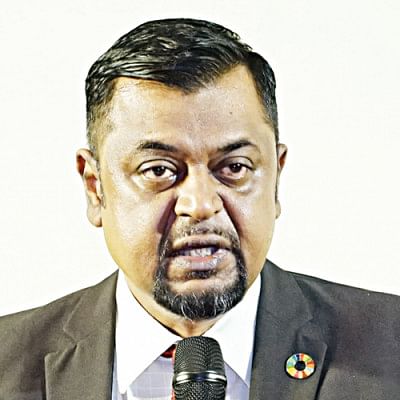
KAM Morshed, senior director, BRAC
I am not summarising but repeating some of the most common messages we heard all day. The crisis started in Myanmar, and the ultimate solution lies in the sustainable and dignified repatriation to Myanmar. Meanwhile, we must minimize Bangladesh's economic and security burden and remain committed to compensating the host community's "loss and damage".
First, we must improve the effectiveness, accountability and economy of the current response requiring more than $3,000/Rohingya Household. Adopting an integrated delivery model, perfected by BRAC and other local NGOs, and increased use of local experts can help.
Second, we must create conditions so FDMNs can earn part of their keep. Meaningful engagement of Rohingya youths in skills development and income-generating activities would reduce the need for external support and deter frustrated youth from going astray.
Studies presented today raised more questions than they answered—which was the intention. I hope these studies will form the foundation for future debates and policy responses.
Recommendations
- The changing needs and priorities of the Rohingyas should be assessed through a participatory process to project the upcoming resource needs and make a realistic plan to address this crisis.
- Increase the involvement of local actors in the Rohingya response effort. The funding agencies should allocate resources and take initiative to build capacity of local actors, including NGOs, to manage the crisis in a cost-effective manner.
- Tie the funding for humanitarian assistance to a multi-annual framework.
- Promote understanding and harmony between the host community and the Rohingya population.
- Effective coordination among all actors involved in the Rohingya response is needed.
- Bangladesh should accede to the 1951 Convention and the 1967 Protocol.
- A comprehensive strategy is needed to facilitate the safe, dignified repatriation of the Rohingyas.
- The evolving nature of the Rohingya crisis necessitates a strategic shift in the way that some innovative interventions on livelihoods, food security, education, and skill development should be taken.
- Address environmental issues comprehensively in the response to the Rohingya crisis.
Discussants
S. M. Monjur Rashid
Programme Head, Advocacy for Social Change, BRAC
Prof. Dr Rashed Al Mahmud Titumir
Chairman, Department of Development Studies, University of Dhaka
Vivek Prakash,
Head of Cooperation, Rohingya Refugee Response, High Commission of Canada to Bangladesh
Soo-Jin Rhee
UNHCR Deputy Country Representative in Bangladesh
Asif Saleh
Executive Director, BRAC
Kathryn Davis Stevens
Mission Director, USAID Bangladesh
H.E. Mr Mustafa Osman Turan
Ambassador of Turkey to Bangladesh
M. A. Mannan M.P.
Honourable Minister, Ministry of Planning, Government of the People's Republic of Bangladesh
Professor Dr Maksud Kamal
Pro-Vice Chancellor, University of Dhaka
Dr Salma Akhter
Professor, Department of Sociology, University of Dhaka
Mohammed Mizanur Rahman
Refugee Relief and Repatriation Commissioner (RRRC), Ministry of Disaster Management and Relief (MoDMR)
Professor Taiabur Rahman
Dean, School of Social Science and Humanities, IUB
Dr. Bokhtiar Ahmed
Professor of Anthropology, University of Rajshahi
Dr. Helal Mohiuddin
Professor of Political Science and Sociology, North South University
Dr ASM Amanullah
Professor of Sociology, University of Dhaka
Miah Md. Mainul Kabir
Director General (Myanmar), Ministry of Foreign Affairs
Dr Imtiaz Ahmed
Professor of International Relations, Dhaka University
Sk. Md. Moniruzzaman
Director General (Additional Secretary), NGO Affairs Bureau, Prime Minister's Office
Gwyn Lewis
UN Resident Coordinator in Bangladesh
Shabbir Ahmad Chowdhury
Secretary (West), Ministry of Foreign Affairs
KAM Morshed,
Senior Director, BRAC

 For all latest news, follow The Daily Star's Google News channel.
For all latest news, follow The Daily Star's Google News channel. 


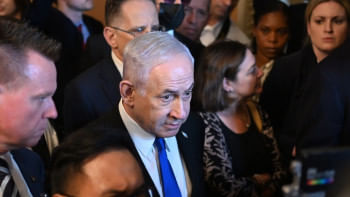
Comments